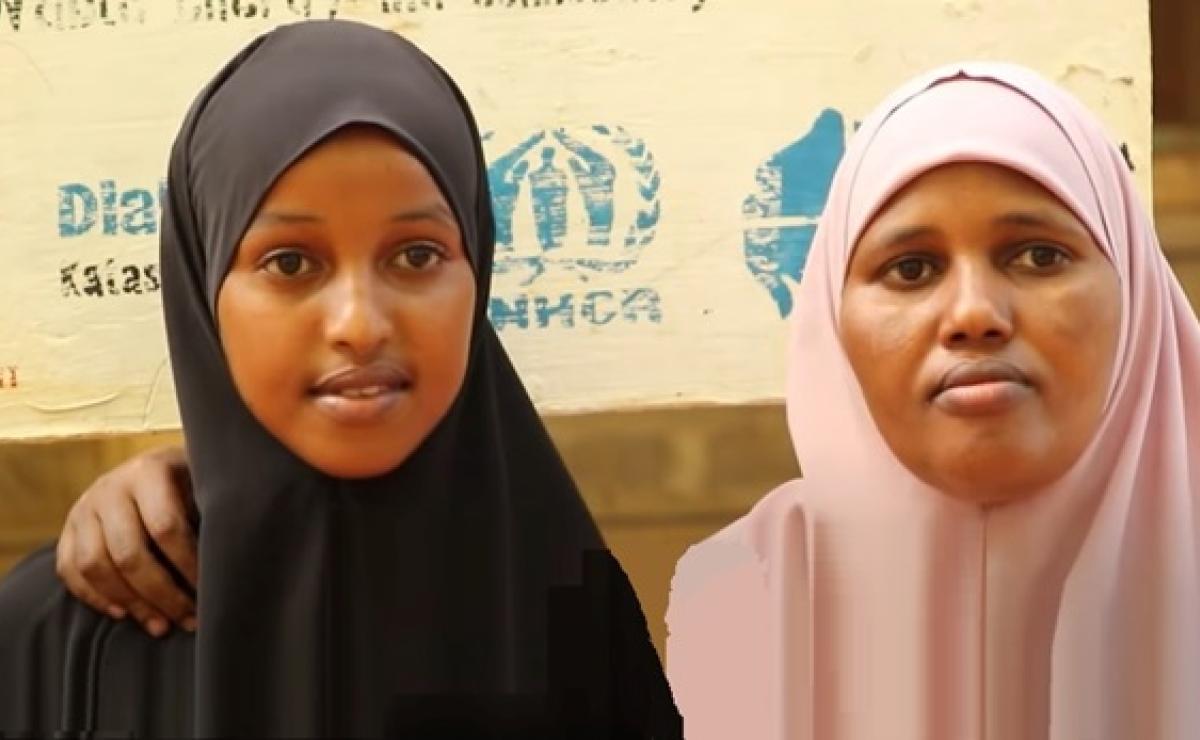Girls record improved performance in KCPE across Dadaab

With 394 marks out of 500 marks, Fathi Mohamud Abukar of Horseed Primary School has stood way above all other candidates in the 2022 Kenya Certificate of Primary Examinations (KCPE) across Dadaab refugee camps. This includes boys and girls in the Dadaab as well as host community primary schools in Dadaab and Fafi Sub Counties.The total number of candidates who sat the 2022 KCPE exams were 1,233,852. 9, 443 candidates scored 400 marks and above with 307, 756 scoring between 300 to 399 marks. With 394 marks Fathi fits among the best 10% nationally, an excellent performance.
During an interview with LWF, Fathi said: “I am very happy about this result. I did not expect this much of a good result, but I am glad that I made it. I am thankful to God Almighty for His grace and to my teachers and parents for the role they have played in my life. I managed to achieve the good result through their unwavering support over the years.” She looks forward to joining one of the best secondary schools and to advance into university upon completion. “I want to become a better person and a useful member of my community. I would like to encourage other learners to work hard and obtain good grades,” she says.
Girls emerged winners among various primary schools: At Hornimo Primary School in Ifo Camp, Ikran Abdi Ali had the best results with 370 points. Meanwhile, Ismahan Issack Aden earned 331 marks to emerge tops at Amani Primary School in Hagadera. Halane Primary School’s Saido Mohamnoor Ibrahim with 365 marks was out to make a strong statement about her superior academic potential, putting Ifo Camp on the results leadership.
“LWF equally supports education for both boys and girls in a protective manner. That said, we are aware that, quite evidently, girls struggle more to gain meaningful education for their lives now and in the future especially within pastoralist communities. We thank our partners for their support to make a lasting impression in the lives of the children,” says Collins Omundu, Education Officer of the Dadaab program for Lutheran World Federation (LWF).
The struggle for basic education is compounded by situations of displacement and living in environments where conflicts are frequent and climate is harsh. Many girls in refugee camps are expected to get married and start having families by age 20, a time when a girl should be pursuing tertiary education.
Intelligent girl with hearing disability
Balkiso Abdi Kassim,16, from Juba Primary School in Dagahaley has emerged as the best among learners with disabilities. She is a girl with hearing disability and uses sign language to communicate. “I want to be a doctor when I finish my education,” she says.
On a typical school day, she leaves her home at 7.40am and walks for fifteen minutes reaching the school gate before 7.55am. Balkiso has two pairs of open shoes that she wears to school. With support from main donors Australian Lutheran World Service (ALWS), Radio Aid and US Bureau for Populations, Refugees and Migration (PRM), LWF provides text books and exercise books which are distributed to all learners at the beginning of each term.
Due to her disability, Balkiso cannot make new friends easily. During her primary studies, she was the only Grade eight learner with a hearing disability. “My best friend is called Faldho Hani, but we are not studying in the same school,” she says. When they meet at home, they like to play together and go to fetch water at the taps. They also sweep the household compound together. She has two sisters and three brothers.

